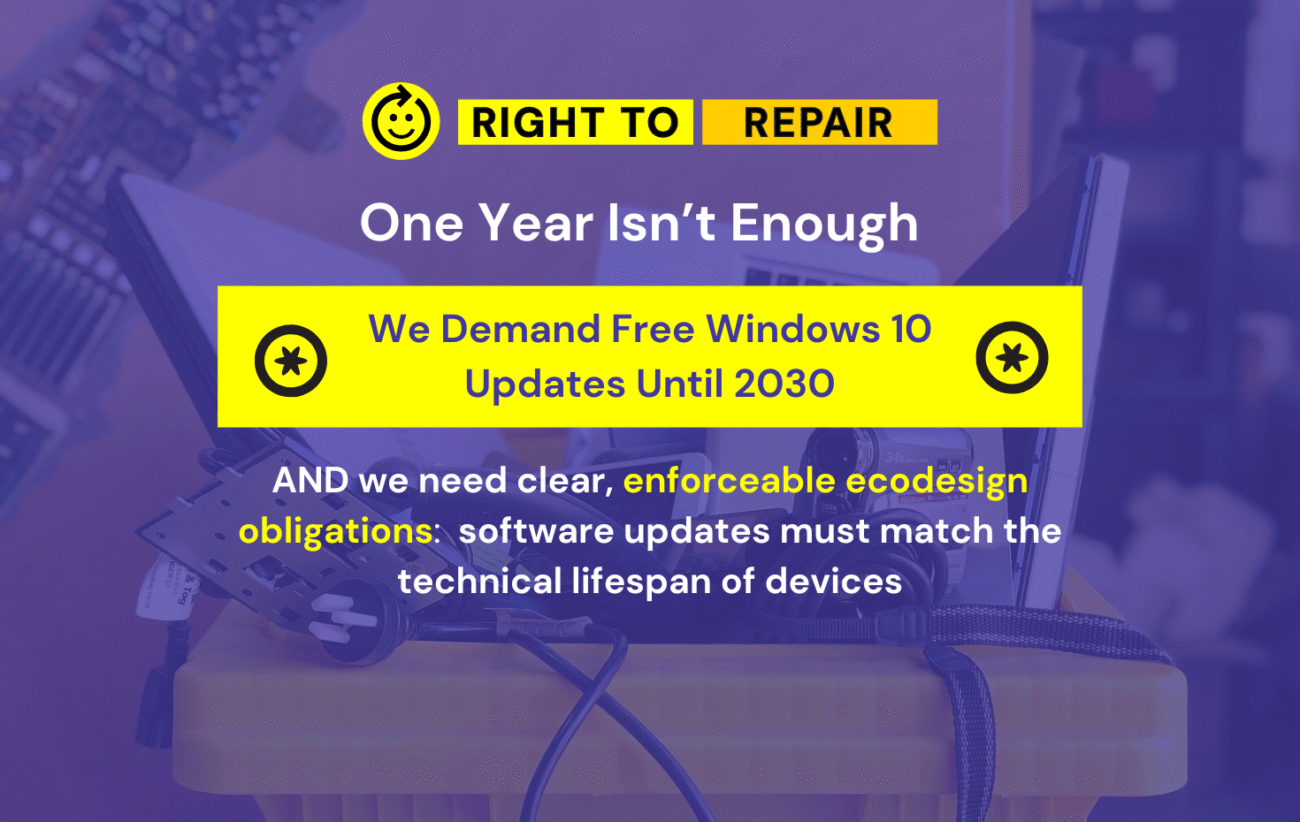Big news: Microsoft has confirmed that Windows 10 users in the European Economic Area (EEA) will get one more year of free updates if they log in with a Microsoft account. This is a win worth celebrating. Our campaigning, writing and chanting forced one of the world’s tech giants to act. That’s no small feat and a clear sign that we have power!
But let’s be honest: this is just a 1-year snooze button.
- It’s hidden, and communication matters: Unless Microsoft clearly informs people about the free extension, millions will still believe they need a new laptop, as communication everywhere on Microsoft’s websites openly suggests.
- One year won’t cut it: Millions of PCs can’t upgrade to Windows 11, and nothing will change by October 2026. A single extra year just delays the inevitable. We need free, automatic updates until at least 2030, not a temporary reprieve.
- Global fairness: Microsoft must extend this policy worldwide, not just in the EEA. The Restart Project and US PIRG are demanding that users worldwide get free updates with no strings attached.
E-waste won’t be solved by corporate goodwill
The e-waste crisis is fuelled by devices killed prematurely by software. We shouldn’t have to fight company by company, device by device. We cannot keep mobilising every time a company decides to cut support. From laptops to medical equipment, from smartwatches to kitchen appliances and even toys, countless products are being thrown away because updates stop. This cycle of premature death for our electronics is wrecking both our wallets and the planet.
That’s why we need strong, enforceable laws to guarantee long-term software support. Corporate promises and temporary fixes won’t cut it. Without real rules, our rights and our environment will keep being sacrificed for profit.
Early obsolescence may be technically banned in the EU, but in practice, it’s everywhere. It’s time to close the loopholes for good.
Why current legislation falls short on software obsolescence
Current measures are insufficient and difficult to enforce, leaving consumers unprotected and devices prematurely obsolete:
- Ecodesign rules only specify minimum software update duration for smartphones and tablets (5 years). Laptops and countless other devices are excluded.
- The Digital Content Directive (DCD) requires suppliers such as Microsoft to provide (security) updates „as long as the consumer can reasonably expect“. A vague provision with no binding duration, making enforcement nearly impossible.
- Cybersecurity rules contain major loopholes: manufacturers can withhold updates if a device’s “expected lifetime” is under five years. Regulation (EU) 2024/2847 (Article 13.8) on horizontal cybersecurity leaves critical gaps. It fails to define the required support period and allows broad exemptions for products deemed to have short lifespans, undermining consumer protection.
The result: without clear, enforceable obligations to provide updates that match the technical lifespan of devices, consumers face no safe or practical option other than premature replacement. Driving up costs and e-waste.
We therefore call on European Commissioner Jessika Roswall to introduce Ecodesign requirements for laptops mandating at least 15 years of software updates. Beyond laptops, the Commission must set strong horizontal requirements on minimum durability and repairability, ensuring software and security updates match the full potential lifespan of all products with a plug or a battery. No more devices designed to fail before their time.

